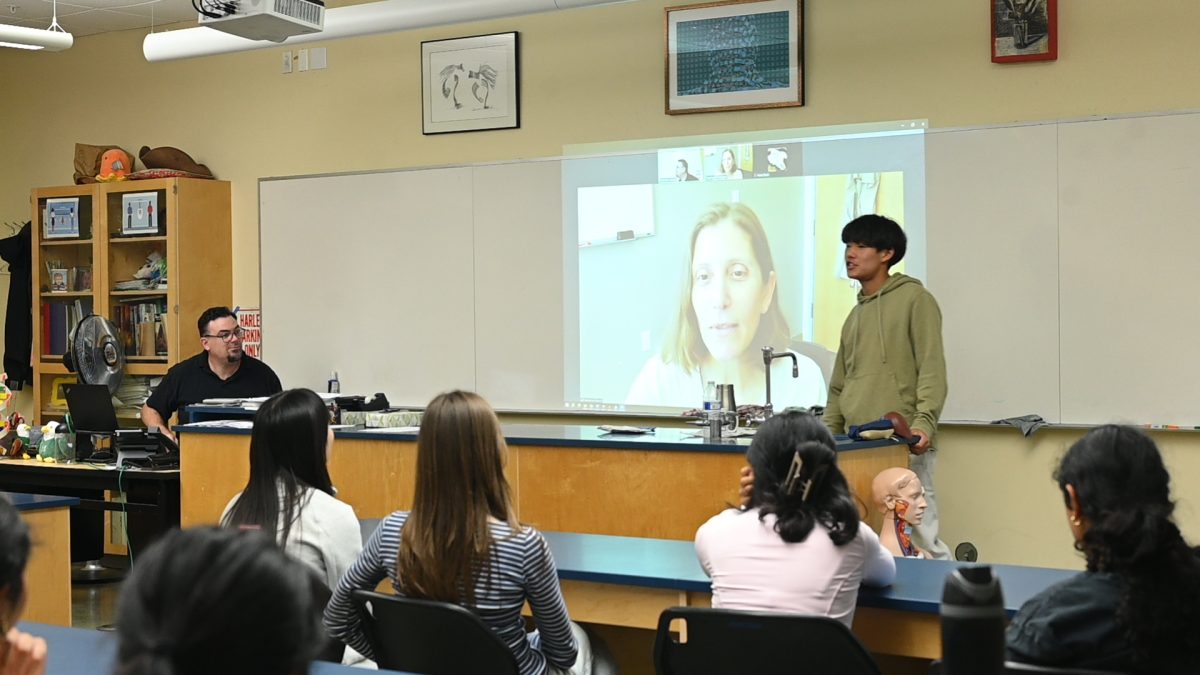(Occasionally) “taking the L”: A cost-benefit analysis of senior fall
November 19, 2017
Cost-benefit analysis: It’s one of the most fundamental concepts of economics, something 100 of our upperclassmen learn every September and then again three days before May exams. For those of you not familiar with economics, it boils down to this: Is what you put into something worth what you get out of it?
Is the information gleaned from an extra hour of cramming in the middle of the night worth the loss of sleep?
Is the grade you’re presumably pursuing worth the dark circles?
Is the class worth sacrificing a little bit of your health?
I’ll be the first to admit that, even after taking economics, I never looked at any of my activities or academics like that. What I gave up in pursuit of something more didn’t seem important; I rarely ever took it into consideration.
Time after time, I picked the extra hour of cramming, never thinking about the alternative. Sure, I hung out with my friends a lot, and I tore through Netflix like it was a by-the-hour job, but I never gave anything less than what I thought was my best, all day, every day, with no cost consideration involved.
The obligation to always go the extra mile wasn’t only a societal imposition. I wanted my best, and I felt guilty and stressed for doing anything less.
About a year ago, though, I started to hit a wall. I wouldn’t say I burnt out, but I finally arrived at a point where I couldn’t balance work and relaxation in the same ratio I previously had.
Everything about my aforementioned life philosophy indicated I should up my commitment to work and accommodate the loss of free time. But as you can probably guess, I decided to deviate—at first out of a desire to hold onto my relaxed younger years, and then out of a stubborn belief that I deserved to finally start considering the cost of what I was doing on my health and my happiness.
Was the extra college or internship or club application worth the time writing the essays? Or the time I’d be putting into that activity? Or the activity itself?
If it wasn’t, then I said no, even if one could argue it was a more productive choice than not doing anything at all.
I know that I could theoretically find the time to participate in more activities or study an extra hour even when I feel I’m done, but I no longer want to. I can finally acknowledge that some things just aren’t worth the time.
My new, harsher criteria of what my time is worth means that sometimes I take a loss, accepting not having done my best, for the sake of sleeping a little more, relaxing a little more or feeling a little happier, when two years ago I would have done whatever I could to fit in everything.
Sometimes I turn in an essay I’m not close to satisfied with.
Sometimes I watch a couple hours of TV on weeknights instead of doing homework, as I’m sure my parents could tell you.
Sometimes instead of working on apps when I’m far behind, I get dinner with my friends or family.
And that’s worth my time.
This piece was originally published in the pages of The Winged Post on November 16, 2017.


















![“[Building nerf blasters] became this outlet of creativity for me that hasn't been matched by anything else. The process [of] making a build complete to your desire is such a painstakingly difficult process, but I've had to learn from [the skills needed from] soldering to proper painting. There's so many different options for everything, if you think about it, it exists. The best part is [that] if it doesn't exist, you can build it yourself," Ishaan Parate said.](https://harkeraquila.com/wp-content/uploads/2022/08/DSC_8149-900x604.jpg)




![“When I came into high school, I was ready to be a follower. But DECA was a game changer for me. It helped me overcome my fear of public speaking, and it's played such a major role in who I've become today. To be able to successfully lead a chapter of 150 students, an officer team and be one of the upperclassmen I once really admired is something I'm [really] proud of,” Anvitha Tummala ('21) said.](https://harkeraquila.com/wp-content/uploads/2021/07/Screen-Shot-2021-07-25-at-9.50.05-AM-900x594.png)







![“I think getting up in the morning and having a sense of purpose [is exciting]. I think without a certain amount of drive, life is kind of obsolete and mundane, and I think having that every single day is what makes each day unique and kind of makes life exciting,” Neymika Jain (12) said.](https://harkeraquila.com/wp-content/uploads/2017/06/Screen-Shot-2017-06-03-at-4.54.16-PM.png)








![“My slogan is ‘slow feet, don’t eat, and I’m hungry.’ You need to run fast to get where you are–you aren't going to get those championships if you aren't fast,” Angel Cervantes (12) said. “I want to do well in school on my tests and in track and win championships for my team. I live by that, [and] I can do that anywhere: in the classroom or on the field.”](https://harkeraquila.com/wp-content/uploads/2018/06/DSC5146-900x601.jpg)
![“[Volleyball has] taught me how to fall correctly, and another thing it taught is that you don’t have to be the best at something to be good at it. If you just hit the ball in a smart way, then it still scores points and you’re good at it. You could be a background player and still make a much bigger impact on the team than you would think,” Anya Gert (’20) said.](https://harkeraquila.com/wp-content/uploads/2020/06/AnnaGert_JinTuan_HoHPhotoEdited-600x900.jpeg)

![“I'm not nearly there yet, but [my confidence has] definitely been getting better since I was pretty shy and timid coming into Harker my freshman year. I know that there's a lot of people that are really confident in what they do, and I really admire them. Everyone's so driven and that has really pushed me to kind of try to find my own place in high school and be more confident,” Alyssa Huang (’20) said.](https://harkeraquila.com/wp-content/uploads/2020/06/AlyssaHuang_EmilyChen_HoHPhoto-900x749.jpeg)






![LALC Vice President of External Affairs Raeanne Li (11) explains the International Phonetic Alphabet to attendees. "We decided to have more fun topics this year instead of just talking about the same things every year so our older members can also [enjoy],” Raeanne said.](https://harkeraquila.com/wp-content/uploads/2025/10/DSC_4627-1200x795.jpg)




